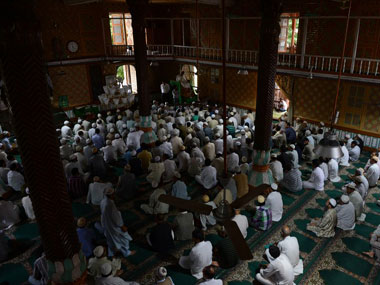“Constitution says that the government will make efforts to implement the uniform civil code… The second important point I would like to make clear is that implementing a uniform code does not mean that all citizens of the country will be brought under the Hindu code,” this remark from Prime Minister Narendra Modi in an interview to an Urdu daily some days ago should temper the irrational debate linking the Supreme Court’s ruling on fatwas to the uniform civil code. The court’s ruling needs to be studied and commented upon with care. Did the court ban shariats or the Islamic courts? No. It says since these community judicial bodies have no sanction in laws of the land, the efforts to impose their orders would be illegal. It is not the same as a ban. Had the courts said that shariats are illegal, this would have come somewhat closer to the idea of a ban. Again, when did the fatwas, the so called advisories issued by muftis, have the authority of a legal decree? [caption id=“attachment_1609251” align=“alignleft” width=“380”]  Representational image. AFP[/caption] A fatwa under the Islamic law is not binding and it is up to the individual concerned to respect it or not. Muslims in the country who are up in the community’s social and economic hierarchy have been treating these pronouncements with some disdain for a long time. Moreover, the verdicts shariats are routinely challenged in regular courts by ‘litigants’. This does not make them an exclusive authority. The court’s ruling satisfies a legal curiosity on fatwas; thus not too much should be read into it. If the rulings of the shariats have no legal sanction, this applies to the rulings of khap panchayats too. For that matter, it applies to community judicial bodies of all religions in the country. All religious groups follow their own personal laws governing marriage, divorce, inheritance and social conduct of individual members. The extra-constitutional authorities have been uniformly pernicious and regressive in their approach towards the individual vs community question. If some Muslim cleric decrees that a woman must accept her husband as her son since the father-in-law raped her, the khaps have done no better. The Indian judiciary has been consistent in its disapproval of these extra-constitutional entities and their rulings. So how does the uniform civil code come into the picture? It is difficult not to link the discussion over it to the perceived resurgence of Hindutva. The reactions to the Apex court ruling suggest that the Muslim opposition to the uniform code has been delivered a body blow and the community now has to succumb to the laws of the majority. The problem with this understanding is, the code, as it was conceived originally in the early days of Independence, was supposed to be a religion-neutral document, not a Hindu code imposed on all minorities. When the code was proposed by BR Ambedkar during debates in the constituent assembly and later, it had attracted resistance from both Hindus and Muslims. The Muslims did not want any judicial interference in their personal law while a vocal section of the Hindus raised grave objections to judicial intervention in matters of inheritance of property, bigamy, adoption and divorce among other issues. Interestingly, the Jan Sangh and the RSS were part of this agitation. Many prominent Congress leaders, including Dr Rajendra Prasad had expressed displeasure at tinkering with the Hindu religious practices too. Later on, the uniform civil code debate got mired in the twin narratives of secular India — one of Jawaharlal Nehru and the other of the RSS. Seen from the latter’s perspective, the code now roughly means subsuming of all traditional laws sanctified by respective religions under a broad category — Hindutva. The massive victory of Modi and, by extension, of the Sangh Parivar in the general elections has given a boost to this line of thinking. But Modi himself gives a sobering perspective to it by saying uniform civil code does not mean a Hindu code. A common code cutting down complexities born out of diversity is a great movement forward in the evolution of nations but it has to represent higher values, not narrow religious considerations. Hope Modi drills this into his followers.
If the rulings of the shariats have no legal sanction, this applies to the rulings of khap panchayats too. For that matter, it applies to community judicial bodies of all religions in the country.
Advertisement
End of Article


)

)
)
)
)
)
)
)
)



